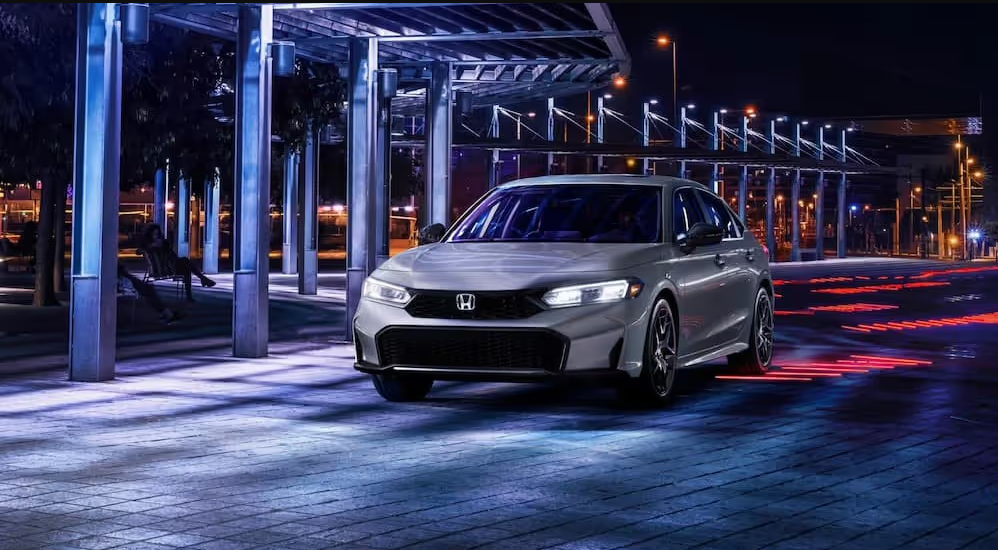How to Choose the Right Vehicle: A Complete Buyer’s Guide for 2025
How to Choose the Right Vehicle: A Complete Buyer’s Guide for 2025
Buying a car in 2025 isn’t what it used to be. With rapid advancements in technology, new energy options, and changing lifestyles, choosing the right vehicle can feel overwhelming. From electric and hybrid models to smart features and autonomous driving options, there are more factors to consider than ever before.
Whether you’re a first-time buyer or upgrading your current vehicle, this complete guide will walk you through everything you need to know to choose the right car in 2025 — tailored to your needs, budget, and future goals.
1. Assess Your Needs and Lifestyle
Before looking at brands or price tags, start with what you actually need. The perfect car for a city dweller may be completely different from what a family of five or a frequent road-tripper would need.
Key Questions to Ask Yourself:
- How many passengers do you typically carry?
- Do you mostly drive in the city, suburbs, or rural areas?
- How often do you take long trips?
- Do you need off-road capability or towing power?
- Are fuel efficiency and environmental impact important to you?
Understanding your daily driving patterns will help narrow down whether you need a compact car, SUV, truck, minivan, or perhaps a hybrid or electric vehicle (EV).
2. Set a Realistic Budget
Your budget determines not only which vehicles are within reach but also what type of financing or ownership options to consider.
Include in Your Budget:
- Down payment
- Monthly loan or lease payments
- Insurance costs
- Maintenance and repair expenses
- Fuel or charging costs
- Registration and taxes
Tip: Use online auto loan calculators to estimate monthly payments based on different interest rates and loan terms.
3. Choose Between New, Used, or Certified Pre-Owned (CPO)
Each option has pros and cons depending on your financial situation and reliability needs.
New Vehicles:
- Latest technology and safety features
- Full manufacturer warranty
- Higher cost and faster depreciation
Used Vehicles:
- Lower purchase price
- Slower depreciation
- Higher risk of maintenance issues
Certified Pre-Owned (CPO):
- Manufacturer-inspected and refurbished
- Warranty coverage included
- Good balance between new and used benefits
In 2025, the used EV market is growing, offering excellent value for budget-conscious buyers looking to go electric.
4. Decide on the Right Powertrain
The biggest shift in recent years is the growing variety of powertrain options beyond traditional gasoline engines.
Gasoline Cars
- Widely available and often more affordable
- Better for long-distance or remote travel
- Less fuel-efficient and more emissions
Hybrid Cars
- Combines gas and electric power
- Excellent fuel economy
- Ideal for city and suburban driving
Plug-in Hybrids (PHEVs)
- Rechargeable battery with gas backup
- Can run on electricity for short distances
- Good compromise between EV and gas
Electric Vehicles (EVs)
- Zero emissions, low running costs
- Government incentives may apply
- Requires home charging or public infrastructure
Hydrogen Fuel Cell (FCVs)
- Emerging option with zero emissions
- Limited refueling stations (only in select regions)
Tip: Consider your region’s charging/fueling infrastructure and your daily mileage before choosing an EV or hydrogen car.
5. Focus on Safety Features
Modern vehicles come packed with advanced safety technologies that can prevent accidents and protect you in a crash.
Must-Have Safety Features in 2025:
- Automatic Emergency Braking (AEB)
- Blind Spot Monitoring
- Adaptive Cruise Control (ACC)
- Lane Keeping Assist (LKA)
- 360° Camera Systems
- Driver Attention Monitoring
Check NHTSA or IIHS ratings when comparing models to ensure high safety standards.
6. Compare Tech and Connectivity Features
In 2025, cars are more connected than ever. While these features offer convenience and entertainment, they also vary widely between models.
Popular Tech Features:
- Touchscreen infotainment systems
- Apple CarPlay and Android Auto
- Over-the-air (OTA) software updates
- Wireless charging
- Voice assistant integration (e.g., Alexa, Google Assistant)
- Navigation with real-time traffic and EV charging station locators
Choose tech features that enhance your driving experience without adding unnecessary complexity.
7. Think About Autonomy and Driving Assistance
Semi-autonomous driving features are now available in many vehicles, even in mid-range segments.
Current Autonomous Features Include:
- Hands-free highway driving (Level 2 and Level 3 autonomy)
- Self-parking assist
- Traffic jam assist
- Automatic lane change
While fully autonomous vehicles aren’t mainstream yet, many 2025 models come with intelligent systems that make driving easier and safer.
8. Consider Long-Term Ownership Costs
Buying a car is more than just the sticker price. Some vehicles are cheaper to own and maintain over time.
Key Cost Factors:
- Fuel or electricity costs
- Insurance premiums
- Maintenance frequency and cost
- Depreciation rate
- Warranty coverage
EVs tend to have lower maintenance needs (no oil changes, fewer moving parts), but may cost more upfront. Hybrids and compact cars often strike a balance between cost and convenience.
9. Take Multiple Test Drives
Don’t rely on online reviews alone — test driving gives you real-world insights into how the car feels and performs.
What to Evaluate During a Test Drive:
- Comfort and visibility
- Acceleration and braking
- Steering and handling
- Cabin noise level
- Ease of tech use (infotainment, displays)
- Cargo space and seating layout
Try to drive in different conditions — highways, local streets, traffic — to get the full experience.
10. Check Incentives and Resale Value
Incentives and rebates can make a big difference in final pricing, especially for EVs and hybrids.
Look for:
- Government tax credits or rebates
- Manufacturer cash back offers
- Dealer promotions
- Low-interest financing deals
Also, research the resale value of the model you’re considering. Brands like Toyota, Honda, and Subaru often retain value better than others. Resale value matters if you plan to trade in or sell the car in a few years.
Final Thoughts: Driving Smart in 2025
Choosing the right vehicle in 2025 is about aligning your personal needs with a fast-changing industry. With electric and hybrid models on the rise, smarter safety systems, and vehicles that update like smartphones, buying a car today is as much about software and lifestyle as it is about horsepower.
By taking a thoughtful, informed approach — and using this complete buyer’s guide — you’ll be better equipped to make a smart, future-proof investment. Whether you’re commuting daily, managing a family, or simply looking for a car that fits your tech-savvy lifestyle, there’s never been a more exciting time to hit the road.









